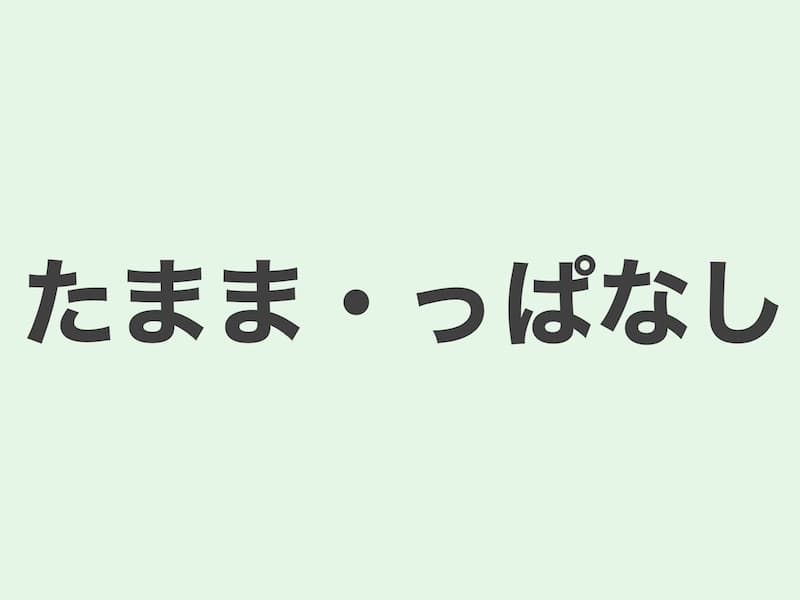説明 (Explanation)
文法(Grammar):た形・ない形・な形容詞な・名詞の+まま・Vます+っぱなし
意味 (Meaning):「たまま」は、状態や状況がそのまま変わらずに続いていることを指します。「っぱなし」は「たまま」よりカジュアルな表現です。
英語(English):It means “Keep.” “たまま” expresses the idea of leaving something in its current state without change. “っぱなし” carries a similar meaning to “たまま” but tends to be more casual and informal.
JLPT Textbook Recommendations
JLPT Textbook Recommendations
例文 (Examples)
- 窓を開けたまま出かけてしまいました。=窓を開けっぱなしで
- テレビをつけたまま、寝てしまった。=テレビをつけっぱなしで
- このままでは期限に間に合わないだろう。
- まだ一度も使っていないので、新しいままだ。
- この建物は、ずっときれいなままだ。
- この街は昔のままで、全く変わっていない。
- 電車で1時間立ちっぱなしだったので、足が疲れた。
- テレビをつけっぱなしで寝てしまった。
- 彼が1人でずっとしゃべりっぱなしだった。
- 子どもが部屋を散らかしっぱなしにしている。
- 水を出しっぱなしにすると、もったいないよ。
ひらなが (Hiragana)
- まどをあけたままでかけてしまいました。=まどをあけっぱなしで
- テレビをつけたまま、ねてしまった。=テレビをつけっぱなしで
- このままではきげんにまにあわないだろう。
- まだいちどもつかっていないので、あたらしいままだ。
- このたてものは、ずっときれいなままだ。
- このまちはむかしのままで、まったくかわっていない。
- でんしゃでいちじかんたちっぱなしだったので、あしがつかれた。
- てれびをつけっぱなしでねてしまった。
- かれがひとりでずっとしゃべりっぱなしだった。
- こどもがへやをちらかしっぱなしにしている。
- みずをだしっぱなしにすると、もったいないよ。
英語翻訳 (English Translation)
- I left the window open when I went out.
- I fell asleep with the TV still on.
- At this rate, we won’t meet the deadline.
- It’s still new because I haven’t used it even once.
- This building has remained clean all along.
- This town remains the same as it was in the past; it hasn’t changed at all.
- I was standing on the train for an hour straight, so my legs got tired.
- I fell asleep with the TV left on.
- He kept talking all by himself the whole time.
- The child left the room messy without cleaning up.
- If you leave the water running, it’s a waste.





コメント